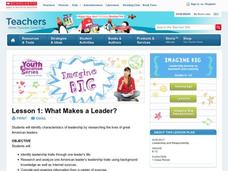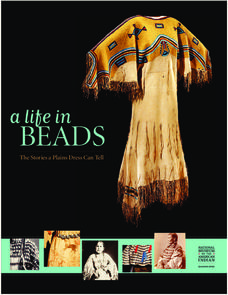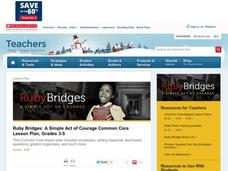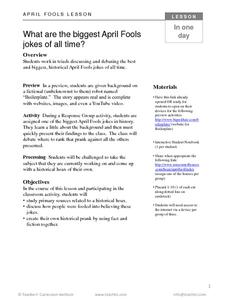K12 Reader
MLK: Complete the Speech
Take a close look at a few paragraphs of Martin Luther King, Jr.s' famous speech, "I Have a Dream." Class members fill in the missing words using the bank of words provided and then respond to a question about the speech and modern day...
K12 Reader
I Have a Dream… Personal Narrative: Writing About Your Dream for the World.
How do your pupils want to change the world? Find out with this writing prompt, inspired by Dr. Martin Luther King, Jr.'s well-known speech. The resource provides the prompt and lines for writing.
K12 Reader
Civil Rights Biography: Rosa Parks
Add to your instruction on the civil rights movement with this biography of Rosa Parks. Class members read the one-page summary of her life, which focuses mainly on the part she played in the bus boycott. After reading, pupils respond to...
K12 Reader
Civil Rights Biography: Dr. Martin Luther King, Jr.
Introduce your class to Dr. Martin Luther King, Jr. and his many accomplishments through a one-page biography. Class members read the text and respond to three questions included at the end.
K12 Reader
The Apprentice System
Readers are asked to identify the central idea and two supporting details that develop this main idea in an article about the apprentice system popular in colonial America.
K12 Reader
Traveling to the Distant West
If you build it they can come. After reading a short article about the impact of western expansion, middle schoolers cite evidence from the article to explain how this expansion forced changes in transportation.
K12 Reader
National Symbols
What do the flag, the bald eagle, and the Statue of Liberty remind you of? After reading a short article about these national symbols, middle schoolers are asked to identify ideas that these items represent.
K12 Reader
The Attack on Pearl Harbor
After reading a short passage about Japan's involvement in World War II and why the Japanese attacked Pearl Harbor, readers are asked to analyze how the attack effected the attitudes of Americans who previously had not wanted to go to war.
Union Elementary School District
Famous Dead People Project
Despite the slightly off-putting title, the instructions and activities detailed in these project guidelines for researching a noteworthy figure will serve as a fantastic supplement to your next famous person research assignment.
Mrs. Hodges' Social Studies Classes
I Have Rights?!
Do young people have rights in the United States? Your pupils will not only learn the answer to this important question, but will also build vocabulary through cloze activities and gain a thorough introduction to the Bill of Rights.
Scholastic
What Makes a Leader?
After creating a list of great American leaders from the last century and researching their lives, pupils will brainstorm aspects of leadership and discuss what traits may be shared by all leaders.
Shell Education
Leaders from the 1790s
The Founding Fathers contributed to the United States in many ways. Class members explore various Founding Fathers through research, group work, and realia. The final product of group work are posters and artistic representations of...
Crafting Freedom
The Self-Empowerment of Harriet Jacobs
After reading Harriet Jacobs' Incidents in the Life of a Slave Girl, one of the most famous slave narratives of all time, learners imagine what it would have been like to experience the small dimensions of her hiding space. They then...
Center for Civic Education
Lesson 3: Becoming a Voter
Who is eligible to vote in your state? Class members examine their states' voting qualifications, complete sample voter registration forms, and chart the elections scheduled.
Center for Civic Education
Lesson 2: Suffrage Amendments
Youngsters examine selected amendments to the Constitution to determine how voting requirements in the US have changed from the colonial days to the present.
National Museum of the American Indian
To Honor & Comfort Native Quilting Traditions
"Native American history leaps boldly off the colorful quilts and patchwork designs." Learners discuss Native American identity and symbolism by reading about a variety of Native quilters and their unique art process, and participate in...
National Museum of the American Indian
The A:Shiwi (Zuni) People: A Study in Environment, Adaptation, and Agricultural Practices
Discover the connection of native peoples to their natural world, including cultural and agricultural practices, by studying the Zuni people of the American Southwest. This lesson includes examining a poster's photographs, reading...
Smithsonian Institution
A Life in Beads: The Stories a Plains Dress Can Tell
Young learners discover how the Sioux and Assiniboine tribes preserved native culture through the making of traditional dresses, identifying the resources used to make the dresses and discussing behind the meaning behind some American...
National Museum of the American Indian
The Kwakwaka'Wakw: A Study of a North Pacific Coast People and the Potlatch
Discover the cultural practices and unique value systems of a group of native peoples from Canada called the Kwakwaka'wakw. Your young historians will discuss how conceptions of wealth can vary and how these native people utilized...
Center for Civic Education
Lesson 1: Who Can Vote in the United States?
The purpose of this first lesson plan in a series of five about enfranchisement and suffrage is to determine what class members already know, or think they know, about voting and voter registration. Groups answer questions on the...
Curated OER
State v. Mary Witch Scripted Mock Trial
Kidnapper or kindly old woman? Kids stage the trial of Mary Witch and must decide if Mary kidnapped Hansel and Gretel or in fact was trying to save them. A script and complete directions are included in the 17-page packet.
Scholastic
Ruby Bridges: A Simple Act of Courage, Grades 3-5
Through character trait graphic organizers, a vocabulary sorting activity, class discussion, and a civil rights movement slide show, your young historians will be introduced to the amazing story of Ruby Bridges and her experiences as the...
TCI
What Are the Biggest April Fools Jokes of All Time?
After working in groups to analyze primary sources related to a historical hoax, learners will discuss how people managed to be fooled and work to identify one of the biggest April Fools jokes in history.
Briscoe Center for American History
Who Was Mary Maverick?
To begin a study of how to use primary source documents, class members read a brief biography of Mary Maverick, one of the first white women settlers in Texas, and answer comprehension questions based on the reading. The first is a...

























